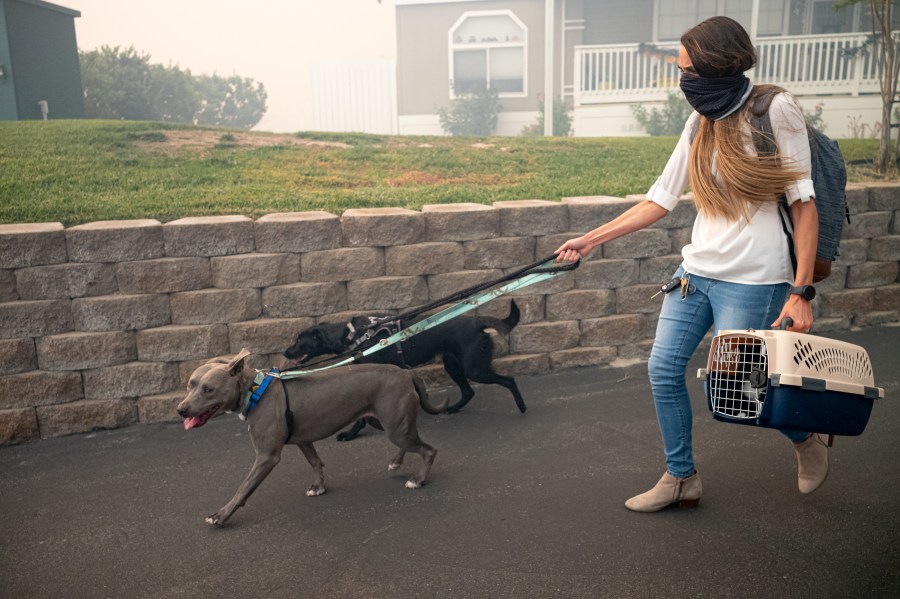
Even if you don’t live near the fire source, wildfire smoke can affect the health and safety of individuals and their pets, and can affect the eyes and respiratory tract of animals.
Owners are advised to contact their veterinarian if their pet exhibits any of the following symptoms:
Coughing or nausea Bloody or watery eyes A runny nose Inflammation of the throat or mouth, or reluctance to eat solid foods Difficulty breathing, such as breathing with the mouth open, or increased noise when breathing or breathing Fatigue or weakness, disorientation Disability, uneven walking, stumbling Loss of appetite, or thirst Here’s how to help those affected by wildfires across Southern California
Air Now, a government program that provides air quality data and forecasts, shared some tips on how people can reduce their pets’ exposure to smoke.
Keep pets indoors as much as possible with doors and windows closed. Bring your outdoor pet to a well-ventilated room, such as a utility room, garage, or bathroom. Move potentially hazardous products such as pesticides out of reach of your pet. Smoke is especially harmful to pet birds. If there is smoke, please keep it indoors. Keep your indoor air clean: Avoid frying or baking, vacuuming, burning candles, using fireplaces or wood stoves, and smoking tobacco products. These activities add particles to your home. Spend less time outdoors and limit physical activity when there is heavy smoke.
If you want to check the air quality in your area, click here.
Source link




